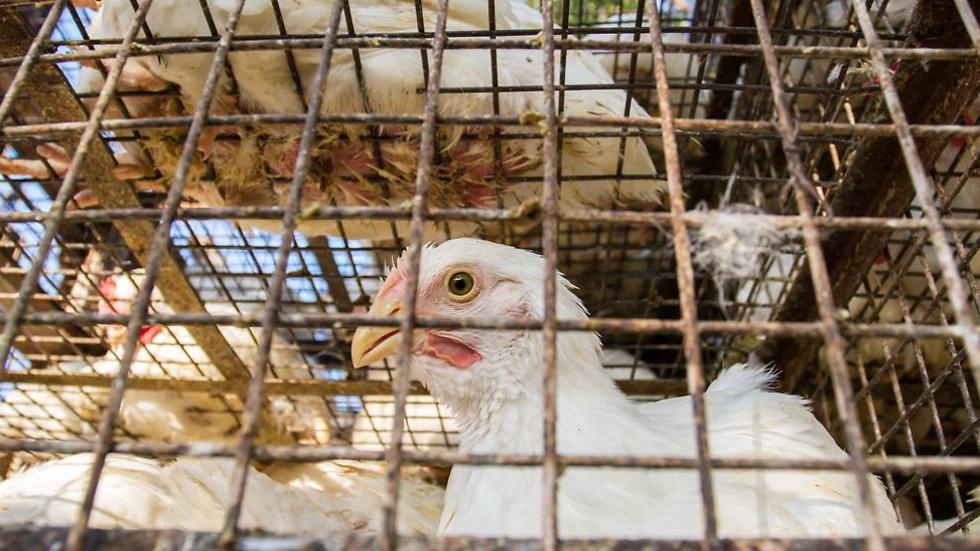
File photo
צילום: ויז'ואל/פוטוס
Israelis help develop homegrown meat
The ‘clean meat’ movement is working towards producing meat-making machines that would permit cultured cells to develop into edible biomasses, drastically reducing the land and greenhouse gases that currently accompany meat production.
It sounds like science-fiction. When it’s time to make dinner, you go over to your chicken-making machine, ask the kids if they want white or dark meat, and press a button. Soon (well, it could take a week or two) out pops your dinner—a piece of chicken that has been made from cultured chicken cells.
“We can take cells from an animal, grow them in a lab and use that biomass to create muscle which is usually the meat we eat,” Yaakov Nahmias, the director of the Alexander Grass Center for Bioengineering at the Hebrew University of Jerusalem, and an adjunct professor at Harvard Medical School told The Media Line. “Cells expand, and there are multiple techniques to do that. We take cells, make it into muscle fibers and assemble them so they will be no different biologically from normal meat.”
Up until a hundred years ago, Nahmias says, people lived in villages and either raised their own chickens or bought them from a neighbor. It is only in the past 100 years or so that chickens were crowded into cages, shot up with antibiotics and then slaughtered. The clean meat movement sees this as a return to the way things were once done, but even better.
The Israeli company SuperMeat makes real meat made without harming animals, it contends in a YouTube clip.
“What would be better than getting meat from killing animals? Getting meat without killing animals,” the clip says. “For the same amount of meat, cultured meat uses 99 percent less land, emits up to 96 percent less greenhouse gases, and uses up to 96 percent less water than the meat industry today.”
SuperMeat is not the only company doing this. In 2013 Mark Post from Maastricht University successfully made a hamburger from cultured muscle fibers. There were two problems—it cost $300,000 and it used fetal calf serum.
“That hamburger was proof of concept,” Shaked Regev, the Chairman of the Board of the Modern Agriculture Foundation said. “But if you’re trying to market this for people who want to avoid animal cruelty that won’t work. We are now trying to bring down the price.”
It will only become commercially viable, he says, once the price is less than a pound of meat in the grocery store. The problem so far has been that muscle cells only divide 15-20 times. In addition, they don’t make fat or blood vessels, meaning you can only make ground meat, not steak.
Nahmias says he has found an alternative — a different cell called mesenchymal cells that rapidly proliferate and can make both muscle and fat. They replicate 30 percent faster than muscle, and do not require animal serum. Eventually, he said, making chicken will be like making bread. Consumers will have a machine at home, like a bread maker, where you can put in the cultured cells and nutrients, and it will make chicken. Or you can buy the clean meat at your local grocery store.
The main impediment right now is cost. Nahmias says it will take another two or three years to finish developing the product and another two years to bring it to market. He is trying to use crowdfunding to raise $1.5 million.
Next month, the Israeli Modern Agriculture Foundation hosts an international conference bringing together international food-tech industry experts, academics and government representatives to drive the clean meat movement forward.
Article written by Linda Gradstein
Reprinted with permission from The Media Line











